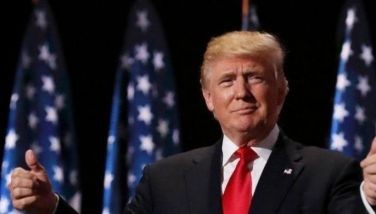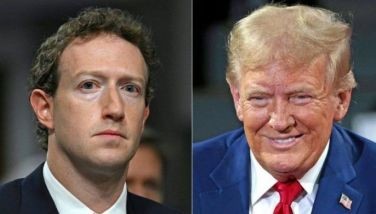US, Europe struggle to make progress in free trade talks
BRUSSELS — Talks to create a massive free trade zone between the United States and the European Union continue to be held back because of disagreements on key issues, making success under President Barack Obama's administration ever less likely.
With the November U.S. elections drawing closer, chief EU negotiator Ignacio Garcia Bercero says that "still, there is a lot, a lot that needs to be done before this negotiation is ripe for conclusion."
After the sides last week held a 13th negotiating session, Garcia Bercero says fundamental disagreements remain over several issues including market access for European firms and protection for the agriculture sector.
Worsening the climate was Monday's release by Greenpeace of confidential negotiating texts that the environmental group claims shows U.S. ill intent and EU acquiescence. The breach of confidentiality also undermined mutual confidence, said Garcia Bercero.
"Does this bother us in the negotiations? Yes, for sure. It is not good for confidence in the negotiating process," he told reporters.
Greenpeace claimed Monday that 248 pages of negotiating documents show how the U.S. is pressuring the 28-nation bloc to accept its terms, weaken consumer protection standards and push through more business-oriented legislation.
Both sides denied the charges, with Garcia Bercero saying several Greenpeace conclusions were "false" and U.S. Trade representative spokesman Trevor Kincaid saying "the interpretations being given to these texts appear to be misleading at best and flat out wrong at worst."
The socialist group in the European Parliament, never on the side of big business in such negotiations, said Monday that the leaked documents mean little. "Nothing in this leak indicates that the EU has complied with any of the U.S. demands," said David Martin, member of parliament for the S&D group. "At this stage, the papers show a great deal of posturing and tactics but little concrete information."
Still, it was a further indication of the challenges ahead for an agreement that is already running well over a year behind schedule. The talks, which seek to tighten ties between regions that together have over 800 million people and half the world's economic output, have come under increasing pressure, especially in the Germany, the economic engine of the 28-nation EU.
There are also fears that a free trade deal could become a target in a U.S. election campaign where economic protectionism and political isolationism have turned into key debating points.
Last week, Obama said in Germany that the "time is now" for the agreement. He warned that if negotiations aren't completed by the end of the year, the deal may be delayed for much longer due to the switch to a new administration in the U.S. and major elections in France and Germany.
In Germany, some 100,000 people have protested against the so-called Trans-Atlantic Trade and Investment Partnership but the government continues to push for it.
German Chancellor Angela Merkel's spokesman Steffen Seibert said Monday that "the speedy completion of an ambitious agreement is very important."
He said that a trade agreement is a great opportunity to shape globalization and that there are few countries in the world that are as dependent on free global trade as the export nation Germany is.
Despite the backing of several key EU governments, progress is slow on numerous points, especially on reducing tariffs and opening markets for services and procurement. The EU opposes some U.S. farms policies that give greater freedom to trade in genetically modified food, chlorine-rinsed poultry and hormone-treated beef.
- Latest
- Trending































